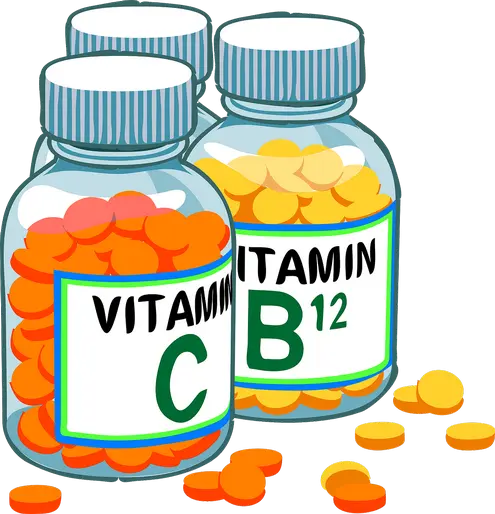Vitamin C reduces the risk of heart disease and stroke.
Research on vitamin C always ends positively. One of the latest medical studies reports that the higher the level of vitamin C in the blood, the lower the risk of heart disease. This result confirms our over 50 years of knowledge that vitamin C plays an important role in maintaining cardiovascular health. Vitamin C is essential for the formation of collagen, one of the important building blocks of arteries, and at the same time reduces arterial inflammation. It is also an important antioxidant that helps other antioxidants (e.g. Vitamin E and glutathione) act on artery walls. According to another study, high levels of vitamin C in blood plasma reduce the risk of stroke by 50%.
Vitamin D reduces the risk of heart attack, atherosclerosis and diabetes
“Vitamin D is commonly associated with bone health,” said Dr. Abigail Rabatin, a cardiovascular health pharmacist at The Ohio State University Wexner Medical Center. “It helps prevent nutrients from being sucked out of the bones and therefore weakening them.” While vitamin D has long been known for its role in promoting healthy bones, researchers at Ohio University have discovered some interesting new benefits for vitamin D – thanks to their work with high-tech nanosensors. Nanosensors have a diameter 1,000 times smaller than a human hair. The researchers used them to measure the effects of vitamin D on individual endothelial cells, which play a key regulatory role in cardiovascular health. These sensors allowed scientists to see in real time how vitamin D was affecting cells.
The experimental results showed that vitamin D it has a regenerating effect on the cardiovascular system, can reduce the risk of heart attack and repair damage caused by hypertension, atherosclerosis and diabetes. Moreover, the presence of vitamin D also reduced oxidative stress, thereby limiting the harmful effects of free radicals.
Vitamin K2 prevents calcification of blood vessels
Recently, an extraordinary discovery has been made in the medical world regarding vitamin K2: it prevents calcium build-up in blood vessels, and growing evidence shows that it may even reverse atherosclerosis. Correlations between vitamin K2 and heart disease have been studied for a long time, for example, a European study of 16,000 people found that coronary heart disease was less common in people consuming higher amounts of vitamin K2. How does vitamin K2 prevent calcification of blood vessels?




